|
|
| |
| EVENTS |
|
|
> Parliamentarians and Media should play role in conflict-resolution and political consensus-building among Provinces on Water Issues
|
|
|
| |
|
Roundtable Discussion
January 26, 2011
Islamabad
|
|
| |
Islamabad, January 26; In a PILDAT Roundtable Discussion for Parliamentarians and Media on Inter-Provincial Water Issues in Pakistan, Parliamentarians and experts stressed upon the need for urgent conflict-resolution and consensus-building among provinces on water issues and the leading role in this regard should be played by MPs and media. Syed Ghulam Mustafa Shah, MNA, Chairman National Assembly Standing Committee on Water and Power, chaired the Roundtable Discussion. |
|
| |
Leading water experts from all provinces including Mr. Muhammad Idrees Rajput, former Secretary Irrigation Sindh, Mr. Mohammad Amin, Member IRSA, Balochistan, Rao Irshad Ahmad, Chairman IRSA Mr. Raqeeb Khan, Member IRSA Khyber Pakhtunkhwa, and Mr. Shams-Ul-Mulk, Former Chief Minister Khyber Pakhtunkhwa and chairman WAPDA, made presentations on different view points on inter provincial water issues.
|
|
| |
While presenting their points of view, experts were of the opinion that the issues between provinces are such that it is only the elected representatives who have to take the initiative in consensus-building. They should also work for removing trust deficit among provinces which is the biggest hurdle. They said that not only on Indus river but off channel dams should also be constructed to fulfill future needs. They were of the opinion that big reservoirs are the need of hour and no one including Sindh is against building new reservoirs but Sindh has strong reservation on Kala Bagh dam. Experts believed that to overcome differences, we need to convert shortages into surpluses which is only possible through building new reservoirs after political initiatives in consensus-building. |
|
| |
Parliamentarians praised the PILDAT efforts for providing an opportunity to them to understand facts behind the issues and mistrust and believed that a concerted and informed dialogue among various provincial stakeholders at the political level is the way forward. Members of Parliament commended PILDAT for taking the initiative in an objective and non-partisan manner and believed that only such an initiative can pave the way for future development of water resources as well as conservation and better management of water resources. Parliamentarians believed that immediate steps should be taken to counter trust deficit. |
|
| |
Earlier, Mr. Ahmed Bilal Mehboob, Executive Director PILDAT, while opening the session, said, that the PILDAT effort is to highlight and raise the issue, open it for debate and create awareness and pave the way for consensus-building. He said we should admit it that there are strong differences among provinces Mr. Mehboob said that after the devastating flood the question of batter water management is again raised so it is the right time to discuss this very important issue. He said the ultimate objective is to resolve such issues through fact-based, sustained and informed dialogue in the political-public domain. |
|
| |
Mr. Ejaz Jhakrani, MNA, Federal Minister for Sports and Syed Samsam Ali Bhukhari, MNA, Minister of State for Information, alongside a large number of MPs from various political parties participated in discussion alongside various TV anchors, columnists and media representatives. |
|
| |
PILDAT unveiled three papers at the Roundtable Discussion including Background Paper on Inter-provincial water issues, a Case Study on Cauvery river from Peninsular India and a briefing paper on issues of water resources in Pakistan. |
|
| |
Specific research publications produced by PILDAT to serve as background to the discourse on water issues, that were shared with participants, included: |
|
| |
- Background Paper: Inter-Provincial Water Issues in Pakistan
- Case Study: Inter-State Water Disputes among Riparian States: The Case of Cauvery River from Peninsular India
- Briefing Paper: Issues of Water Resources in Pakistan
|
|
| |
|
|
| |

|
|
| |
|
|
| |

|
|
| |
|
|
| |

|
|
| |
|
|
| |
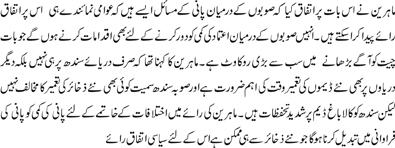
|
|
| |
|
|
| |
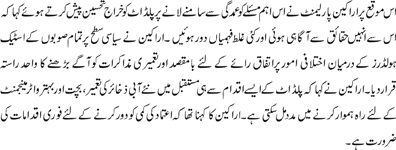
|
|
| |
|
|
| |

|
|
| |
|
|
| |

|
|
| |
|
|
| |

|
|
| |
|
|
| |
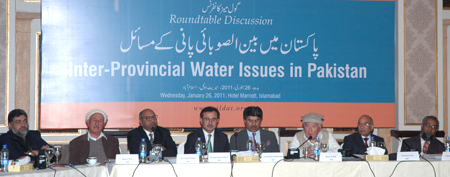
|
|
| |
|
|
| |
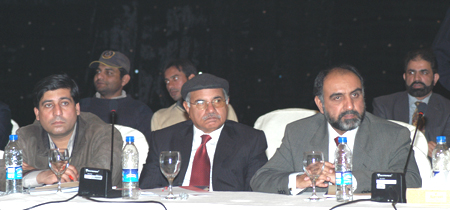
|
|
| |
|
|
| |
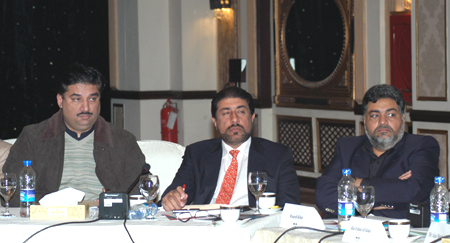
|
|
| |
|
|
| |
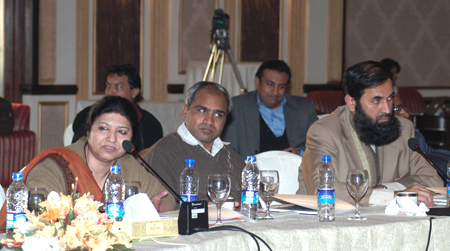
|
|
|
|
|
|
|
|
|